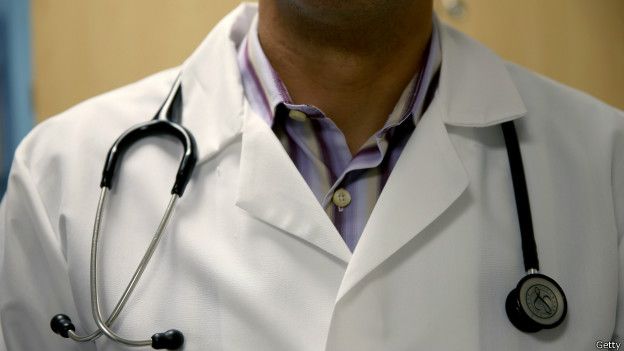The latest Ghana Human Development Report, themed "The Future Value of Work in Ghana," warns that the country's health system could worsen if immediate steps are not taken to address the mass exodus of doctors and nurses trained in Ghana.
The report asserts that 24 percent of nurses trained in Ghana are currently working abroad due to poor working conditions. The situation is even more critical for doctors trained in Ghana, with 50 percent having left the country.
The document, authored by the United Nations Development Program in partnership with the Statistical Service and the National Development Planning Commission, states that the health sector is in a precarious state due to this development and requires policy and pragmatic measures to avert a total shutdown of the sector.
The report noted that during the COVID-19 outbreak, the health system demonstrated its robustness in coping with emergencies.
Nonetheless, the system faces challenges, including shortages of essential materials, such as personal protective equipment (PPE) during the COVID-19 outbreak, and the availability of qualified personnel.
The latter has been exacerbated by the emigration of qualified health personnel (Global Partnership Network, 2024).
"It is estimated that 50 percent of doctors and 24 percent of nurses trained in the country are working abroad due to poor working conditions for health personnel in the country. Although not new this has the potential to further worsen the precarious health system, a situation which would require some policy and pragmatic interventions."
The Future of Work report also pointed out that implementing the identified strategies outlined in the document is expected to respond to the changing health needs of the country.
As disease burden becomes more complex due to risk factors such as environmental issues, changing age structures, and changing lifestyles, the healthcare system needs to be responsive to the needs of the population.
The report also discussed Ghana's health policy, which identified 11 areas that will require strengthening. Among them are health promotion, palliative, and rehabilitative care, which have lagged behind preventive and curative care.
“Ghana is at a stage where health promotion which deals with primary healthcare and environmental issues is needed to propel health care to a level which can have both direct and indirect impact on human capital development," the document noted.
It also proposed the adoption of a life course approach to health delivery which will make it possible to deal with various categories of the population such as the aged, persons with disability, and other marginalised persons such as those in urban slums, who in most cases, are unable to fully take advantage of curative and preventive care which are available.
Below is the full report:
Latest Stories
-
Kwame Opoku scores twice as Kotoko beat Golden Kick to MTN FA Cup triumph
2 minutes -
UGBS, CIHRM Ghana hold corporate health walk to support HRM professorial chair fundraising
43 minutes -
Ghana’s Prof. Alexander Debrah wins €50K EDCTP Dr. Pascoal Mocumbi Prize for global health contributions
2 hours -
Fuel prices to fall from June 16 due to postponement of GH¢1.0 levy
3 hours -
PassionAir assures passengers after Kumasi–Accra flight encounters turbulence
4 hours -
Fatherhood Beyond Finances: Two drivers inspire a rethink on presence, bonding and recognition
4 hours -
President Mahama urges protection of fuel price gains amid Middle East tensions
4 hours -
Republic of Rogues: Where Thieves Have Heads and the System Has None
5 hours -
Musah Mohammed donates jerseys and footballs to youth teams in Nkawkaw
6 hours -
Omane Boamah urges youth to persevere, recounts dramatic admission struggle at POJOSS
6 hours -
Minority unhappy over suspension of fuel levy, demands full repeal
6 hours -
Helicopter carrying Hindu pilgrims crashes in India, killing seven people
6 hours -
Council of State member urges Ghana to localise global solutions for youth employment
7 hours -
CAS overturns FIFA ruling and awards Right to Dream development fees from Ernest Nuamah’s transfer
7 hours -
Hitz Praise Zone: Nii Noi launches new gospel show on Hitz FM
7 hours

